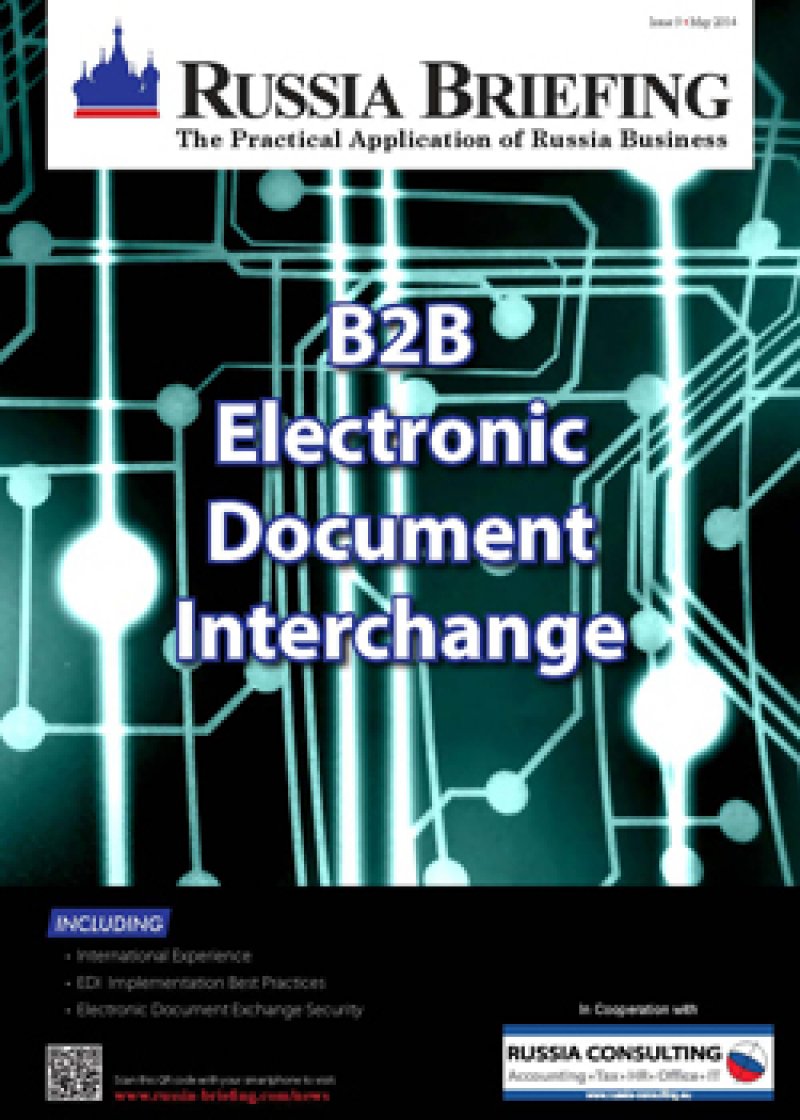
B2B Electronic Document Interchange
Published: May 2014In this issue of Russia Briefing we describe the international experience pertaining to electronic document interchange (EDI). EDI has revolutionized accounting work in Russia. We also provide an overview of the legal framework pertaining to EDI in Russia and illustrate the reasons to convert to EDI. Next we explore some technical aspects of EDI implementation and explain a few of the best practices in EDI implementation. Finally, we touch upon issues of electronic document interchange security.
In this issue:
- International Experience
- Legal Environment of EDI
- Five Reasons for EDI Implementation
- Technical Adaptation and Process Implementation
- EDI Implementation Best Practices
- Electronic Document Interchange Security
The specific and practical aspects of Russian accountancy are well known to foreign companies that are operating in the Russian Federation. Such documents, far more than Western companies use, require hours of printing, manual stamping and signing, mailing, and storing.
Over the past few years a number of laws have been passed in the Russian Federation to create a solid legal framework for electronic document interchange (EDI) and the documents can now be created, sent, confirmed, and archived electronically.
This new procedure revolutionizes accounting work in many ways. Personal signatures, stamps and handling stacks of paper as well as couriers are no longer necessary. This makes the overall process much more efficient and effective. With electronic document interchange, there is reduced time spent on document processing, quicker access to archived documents, automated control and processing and guaranteed document delivery.
And, as a result, there is decreased expense for processing primary documents. Various studies indicate that EDI can result in a savings of up to 70 percent compared to paper invoicing.
The transparency of financial and contract work also increases with the introduction of electronic document interchange as the document flow becomes more controllable and e-copies can be easily retrieved and traced. This in turn helps to reduce both operational and financial risks associated with paper documents and storage.
Adopting an electronic document interchange is also likely to result in a competitive advantage. The reason for this is that the electronic invoice process eliminates a number of tasks and thus gives the accountant an opportunity to focus more on customer service and relationships. In a way, it creates a shift in how the accounting work is approached, putting greater focus on value-added tasks.
The environmental impact of introducing electronic document interchange is also quite significant, leading to less waste – in paper, ink, energy, etc. While it may seem insignificant, many companies are leading the way in environmental friendliness.
If your organization is considering or has already made a decision to adopt EDI, this magazine may offer you some helpful insights. This issue of Russia Briefing describes international experience pertaining to electronic document interchange. In general, it provides an overview of the legal framework pertaining to EDI in Russia, illustrates the reasons to convert to EDI, explores some technical aspects of EDI implementation, discusses some of the best practices in EDI implementation and finally touches upon issues of electronic document interchange security.
The content of this magazine was compiled by SCHNEIDER GROUP (RUSSIA CONSULTING) staff in Russia.

